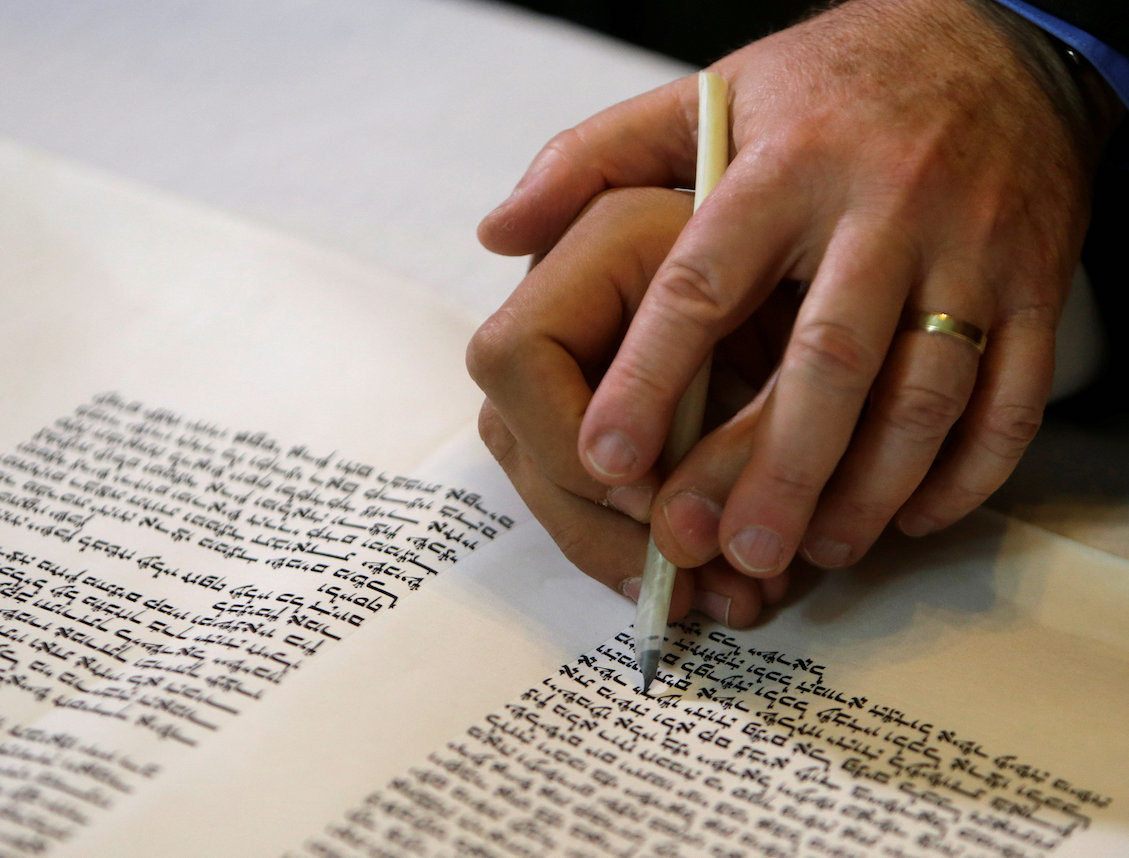 Reuters/David W Cerny
Reuters/David W Cerny For the past eight years, I have led a study group for physicians from my congregation. Every few months, we get together for good food, some wine (OK, lots of wine) and to discuss issues like medical ethics.
About three years ago, several of the sessions clustered on the idea of whether doctors could have empathy toward their patients. As one of the doctors wrote to me: “Can you (should you) act empathic when you don’t feel it? Is it okay not to feel it? How can you feel it in every encounter when you see 25 patients, one after the next, day after day?”
This week’s double portion, Parashat Tazria-Metzora, very subtly raises these same questions. Of all the weekly readings, these two in the book of Leviticus are by far the most medical, dealing with topics like afterbirth, seminal discharges, skin eruptions, burns and sores. How do we make sense of these conditions? How do the rabbis understand them?
To begin, it is necessary to make an apology. For hundreds of years, religious scholars and rabbis have associated the theology of sin and guilt with that of disease. Often, in order to make a moral point about gossip or some other social ill, rabbis link this section in Leviticus with the text in Deuteronomy where Miriam criticizes Moses and then is struck by a skin eruption. Their conclusion tells us that to be declared tameh (literally unclean) is the same as being unfit ethically. To be sick is to be wrong, and to be debilitated makes you an abomination to both your fellow human beings and to God.
When we graft morality too heavily onto purity and wellness, we cause more suffering while ignoring the sanctity of the sick. To be unclean is not to be immoral — ever.
One does not have to go far to see the danger in this thinking. How many would-be mothers are made to feel that something is morally wrong with them if they cannot bear children? How many people who have cancer feel that it’s a punishment for some unknowable crime?
When we graft morality too heavily onto purity and wellness, we cause more suffering while ignoring the sanctity of the sick. To be unclean is not to be immoral — ever.
Learning with my congregation’s doctors made it clear to me that they share much with the ancient priests of Israel, actually. The priests of our far-reaching past were twice burdened, first by God to be the caretaker of the Divine-human connection through the rituals of the Mishkan (Tabernacle), and again by the people themselves, who presented to the priest all manner of physical ailment. The same is true for the doctor who embodies the knowledge of science and then takes that knowledge and encounters real people.
Where they intersect the most is in the realm of human connection, the critical role of empathy. The parallels between doctoring and priestly work, the heady stuff of bearing witness to the most profound moments of human suffering, find their greatest expression in the empathic need for mutual recognition.
The word “patient” comes from the Latin meaning “to suffer.” The patient suffers and wants to be seen as a validated person in the eyes of the sacred authority. The priest/doctor can give validation through empathy, while feeling that they have been given a gift by being cum pati, with those who suffer, for their own life has been validated as consequential. Such is the dual gift-giving of being in service to one another and why the rabbis caution us to treat the sick with dignity and honor, for it is at the foot of their bed when we visit with care and love that God’s presence resides (Shulchan Aruch, Yoreh De’ah 335).
Lastly, we know from Leviticus itself what role empathy plays out in the act of holiness. The central theme of the Holiness Code, found a few chapters later, is that empathy itself leads to holiness. “Love your neighbor as yourself” (Leviticus 19:18) is one of the great cornerstones of Western morality.
This plays out nicely with those who have been healed from their sickness. After the priest sees them and welcomes them back to the community, a sacrificial rite is performed. The patient is brought to the literal center of the community and anointed in the same manner with the same rituals that anoint the High Priest over the people. Both priest and patient are bound together in this ritual of mutuality.
The ethical stance on sickness found in our Torah is not to see how the ill are immoral, but how those who suffer illness provoke us to become more moral by responding to their suffering in the same manner as the priest — with empathy, patience and care.






















 More news and opinions than at a Shabbat dinner, right in your inbox.
More news and opinions than at a Shabbat dinner, right in your inbox.